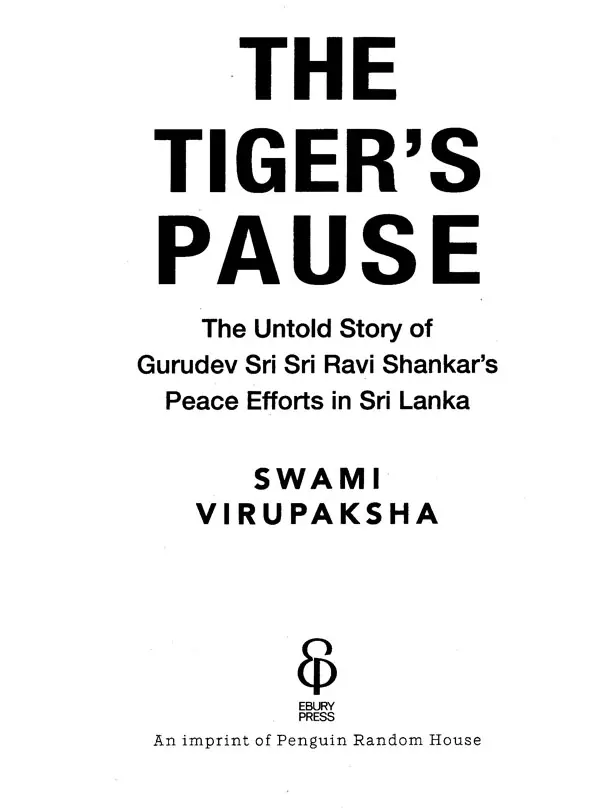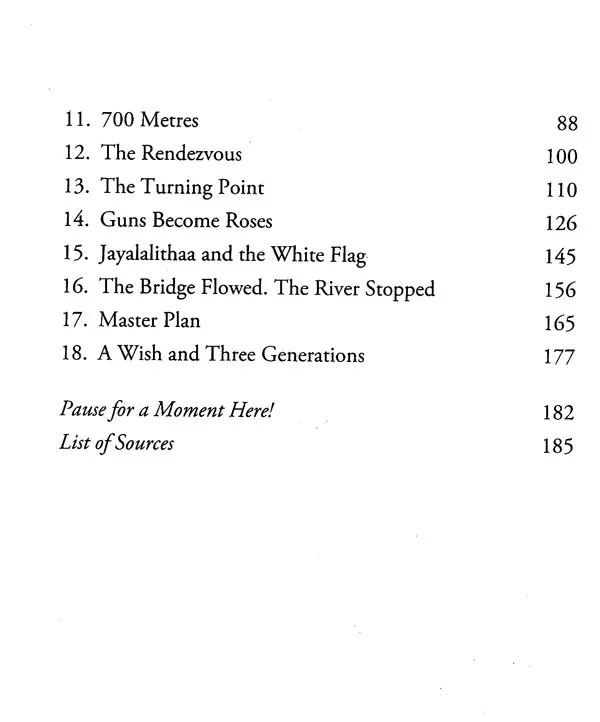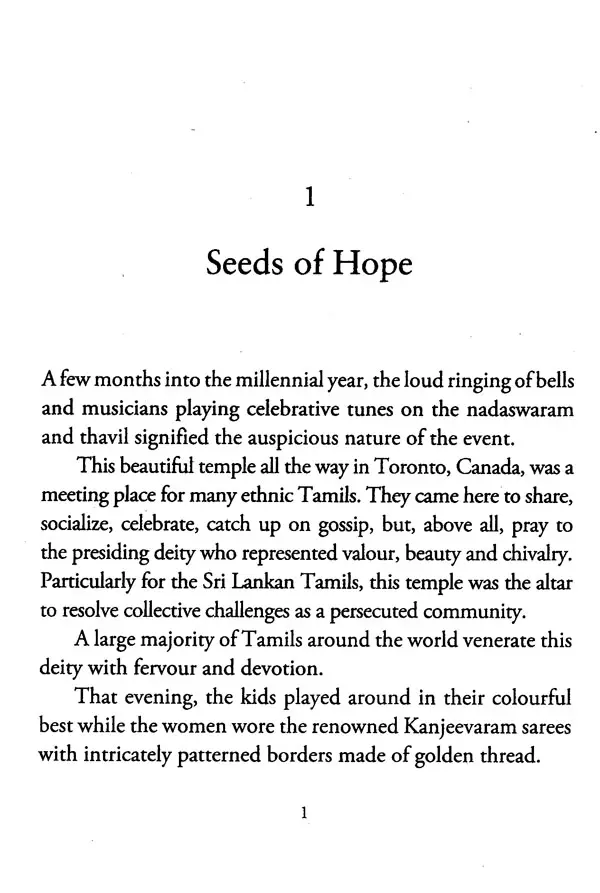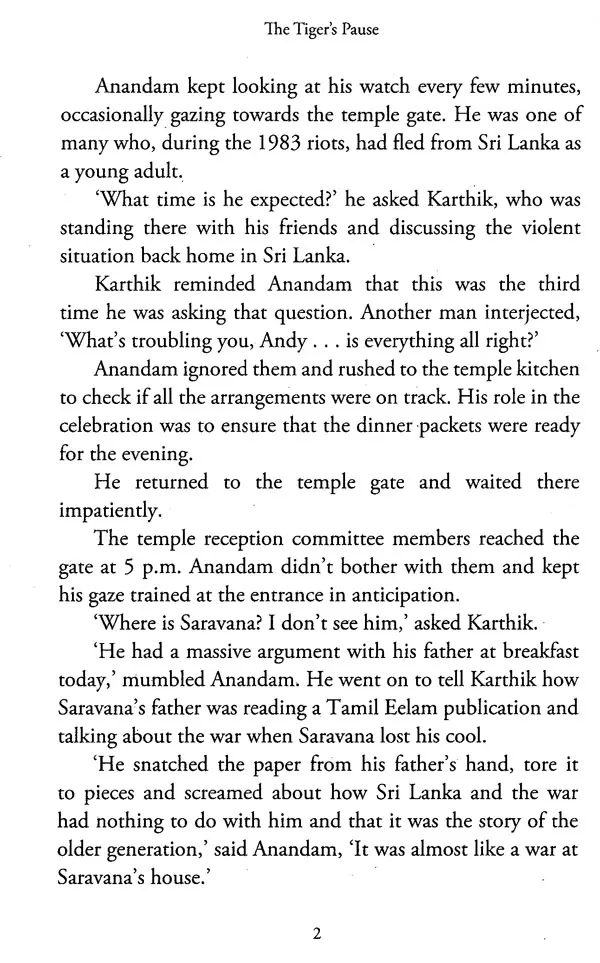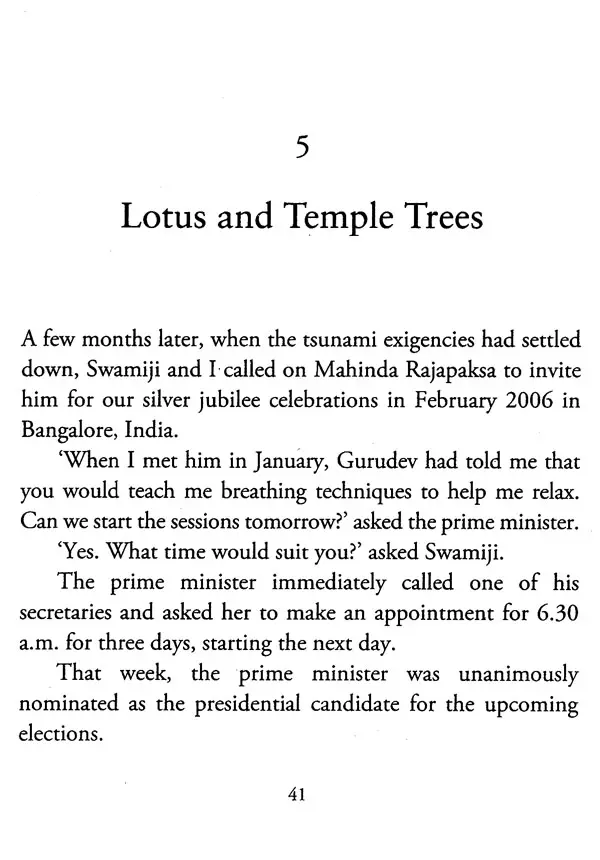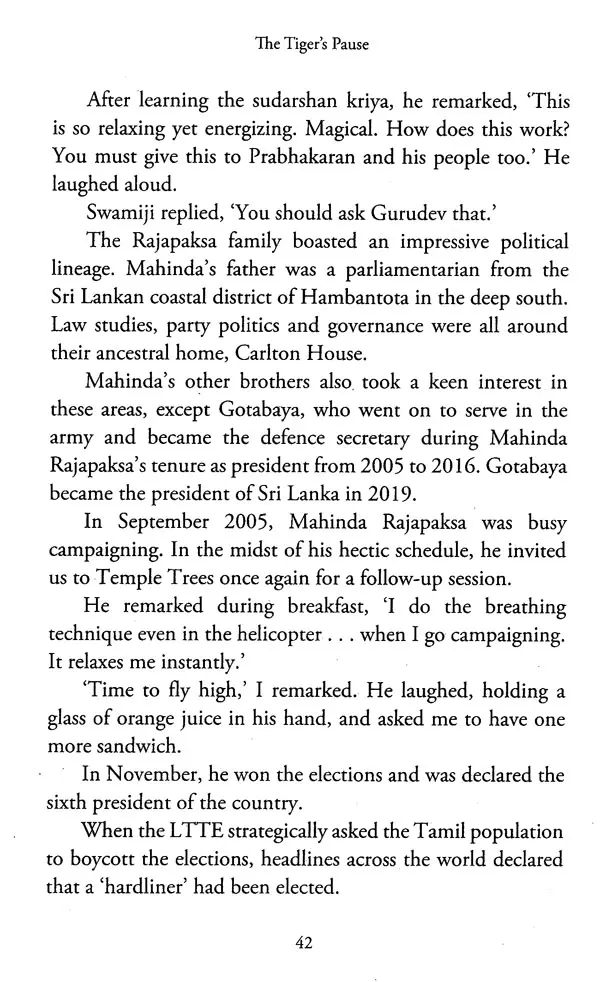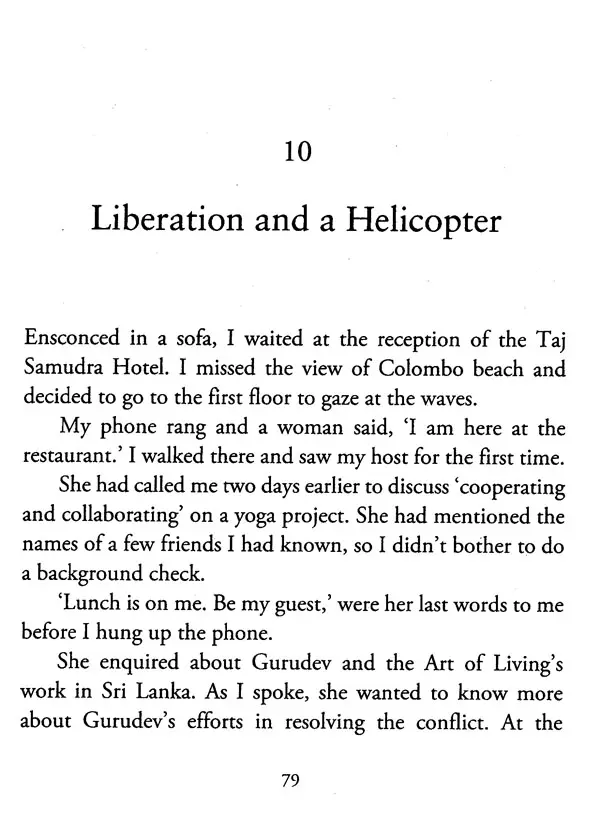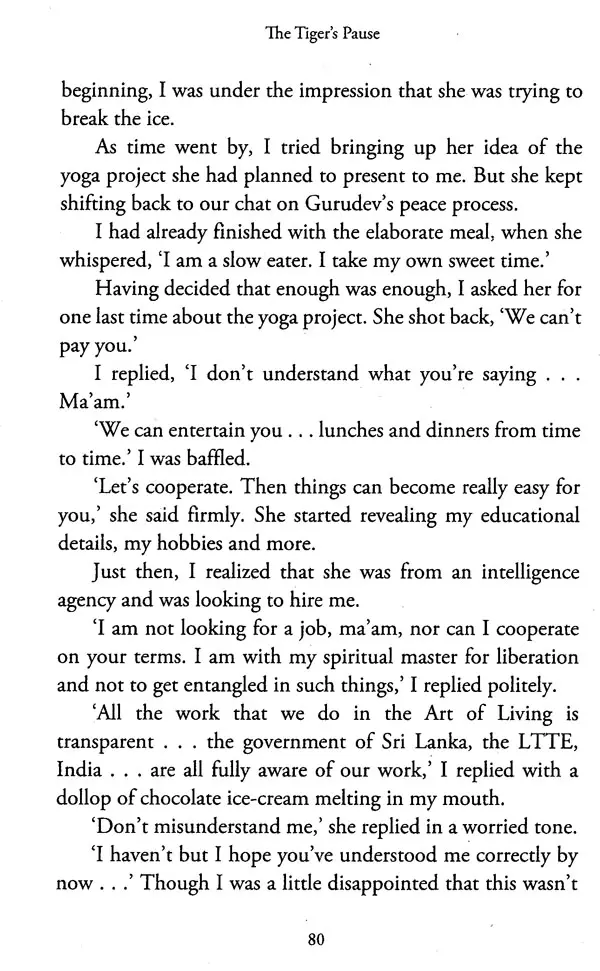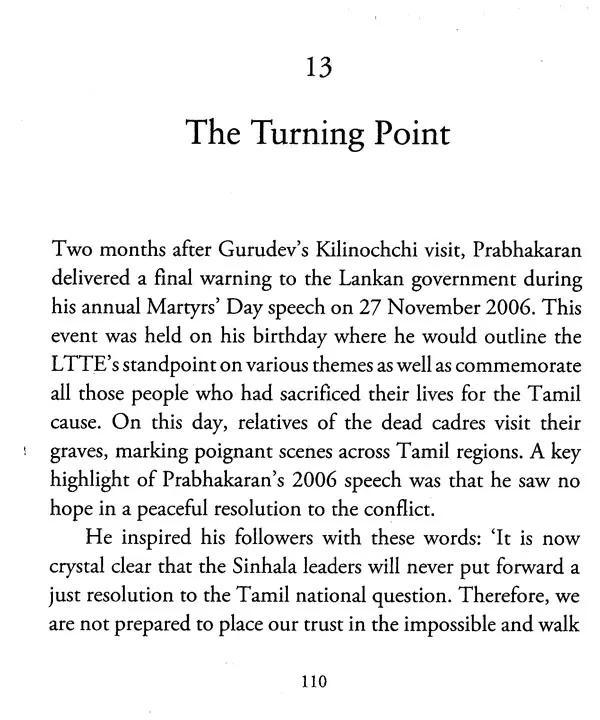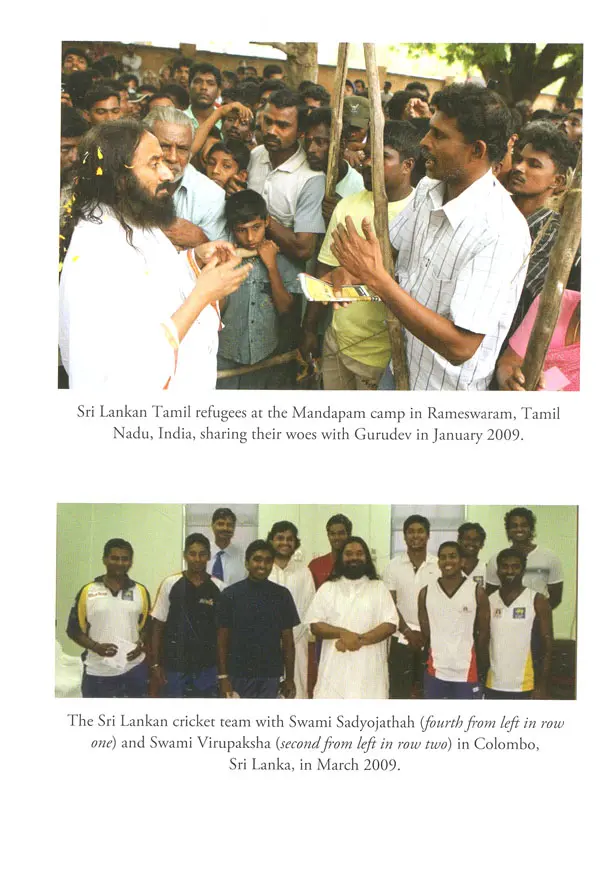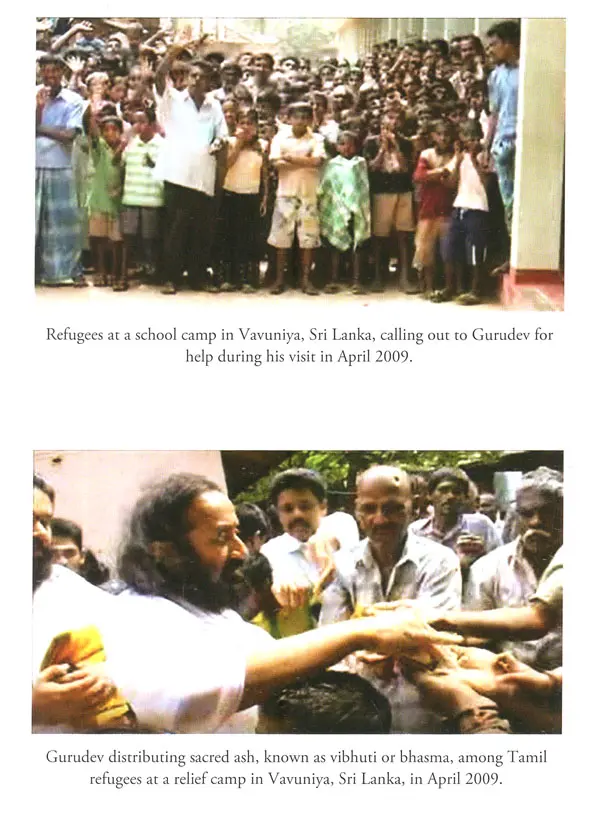
The Tiger's Pause- The Untold Story of Gurudev Sri Sri Ravi Shankar's Peace Efforts in Sri Lanka
Book Specification
| Item Code: | UAR824 |
| Author: | Virupaksha |
| Publisher: | Penguin Random House India Pvt. Ltd. |
| Language: | English |
| Edition: | 2022 |
| ISBN: | 9780143456988 |
| Pages: | 189 (Color Illustrations) |
| Cover: | PAPERBACK |
| Other Details | 8.00 X 5.00 inch |
| Weight | 170 gm |
Book Description
As the fourth phase of the twenty-six-year-long civil war in Sri Lanka was about to begin, Gurudev Sri Sri Ravi Shankar, founder of the Art of Living, visited the island nation with a singular aim: to bring peace to its citizens while trying to mediate between Prabhakaran, leader of the Liberation Tigers of Tamil Eelam (LTTE), and the government. The Tiger’s Pause chronicles Gurudev’s time in a highly strung country and also offers an exclusive look into the final chapters of Sri Lanka’s deadly conflict.
Swami Virupaksha, who spent nine years in the country expounding the Art of Living courses and organizing Gurudev’s visits, expertly charts the enormous hope of the Tamil and Sinhalese people against overwhelming misery. In prose that is both concise and empathetic, Swami Virupaksha gives readers a sweeping view of Gurudev’s endeavours towards a ceasefire agreement, and the ups and downs of a country’s quest for peace. The Tiger’s Pause is the narrative of the Sri Lankan people, and gives us a sense of what it takes to understand and address a shared trauma.
Swami Virupaksha, a transformative practice specialist, has dedicated his life to supporting and promoting the vision and mission of world-renowned spiritual leader Gurudev Sri Sri Ravi Shankar.
Besides Europe and India, Swami Virupaksha served in Sri Lanka for nine years as a key member of Gurudev's conflict-resolution team during and after the country's war-torn days.
Over the past twenty-two years, Swami Virupaksha has worked on delivering humanitarian initiatives that served all sections of society. In training lawmakers, heads of state, the clergy, a national cricket team, war refugees, educationists, college students, prison inmates and corporates, he has brought people together in the spirit of voluntary service.
Born Vidyut Udiaver, Swami Virupaksha is an alumnus of Don Bosco School and Loyola College, Chennai. He holds a degree in economics and business management. He has experience in brand management, having worked in leading international marketing and advertising firms, including Ogilvy & Mather (O&M) and L'Oréal.
He is an aficionado of art, music, languages and world culture, and his love for French, creativity and moments of deep silence make him feel at home wherever he goes.
Currently based in Bangalore, he is also an advanced meditation teacher with the Art of Living global movement.
Sri Lanka, the beautiful island nation nestled in the Indian Ocean around 30 km from India's southernmost point of Rameswaram, gained freedom from the British in 1948. But tensions were growing even before the British left.
A section of the Sinhala-speaking Buddhist majority, the Sinhalese, resented the colonial era British favouritism towards the Tamil minority. The Sinhalese felt that they had been treated unfairly, getting the short end of the stick, thus reducing their socio-economic opportunities.
This resentment was just one of the seeds of ethnic tension between the Sinhalese and the Tamils that culminated in one of Asia's longest civil wars from July 1983 to May 2009.
Post-independence, several other causes widened the ethnic divide in Sri Lanka. Tamil plantation workers who had migrated from India felt deprived of their rights, Sinhala was made the official language and Buddhism was declared the primary religion. Then came the Bandaranaike Chelvanayakam Pact of 1957 that seemed to signal a certain level of autonomy for the Tamil population. However, the agreement was abandoned in less than a year. All these events and decisions, especially the discontinuation of the pact, led to ethnic violence between the two communities, eventually culminating in Sri Lanka's nearly three-decade-long civil war.
**Contents and Sample Pages**
